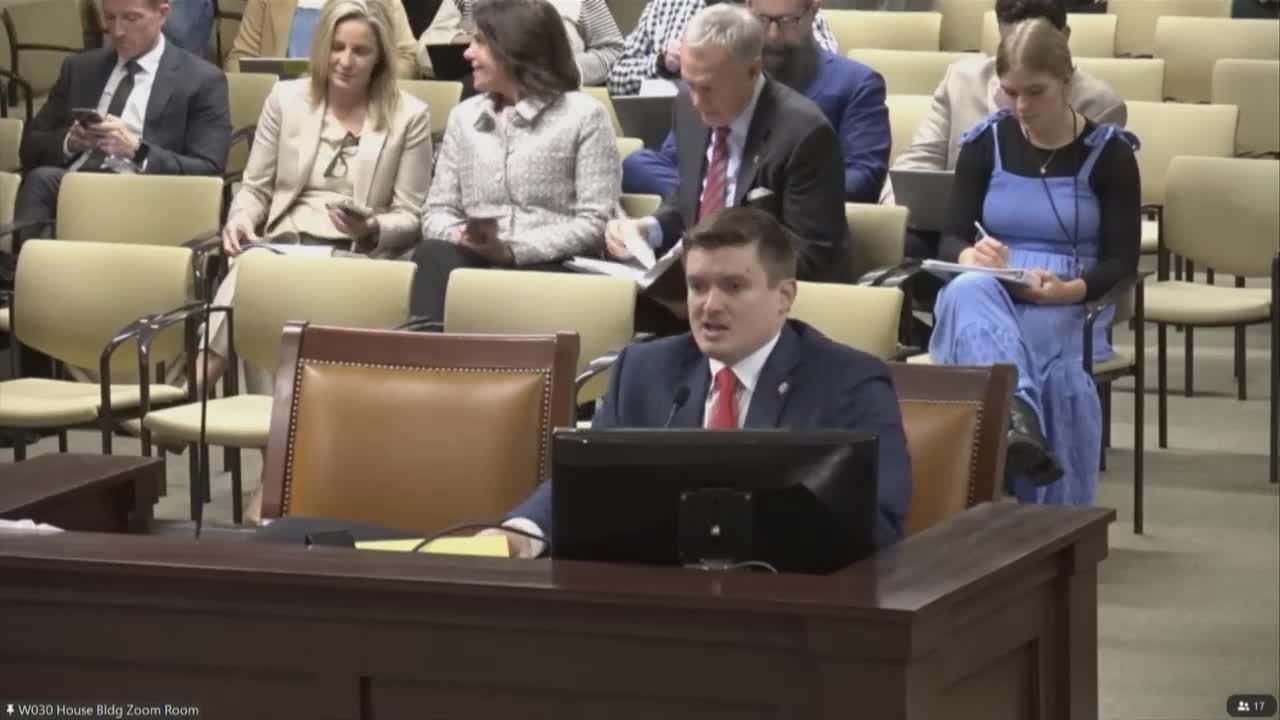Utah committee adopts substitute for HB 3 29 to codify shelter safety, data and funding rules

Summary
House Bill 3 29, a broad rewrite of state policy for homeless services, advanced from committee after extended testimony and public comment. Representative Tyler Clancy, the bill sponsor, told the committee the bill “creates drug free homeless services” and aims to translate existing best practices into state law.
House Bill 3 29, a broad rewrite of state policy for homeless services, advanced from committee after extended testimony and public comment. Representative Tyler Clancy, the bill sponsor, told the committee the bill “creates drug free homeless services” and aims to translate existing best practices into state law.
The bill’s sponsor said the measure clarifies intake and information-sharing rules for providers, so that taxpayers’ funds are not a “safe harbor for criminals,” and empowers elected local officials to participate more directly in winter-response and governance decisions. "We wanna make sure that elected officials feel like they are empowered in these decision making efforts," Clancy said.
Clancy described several main components in the first substitute: safety and screening protocols for shelters (including bag checks and metal-detector-style searches as used by some providers), requirements for client agreements that allow information-sharing with law enforcement in certain circumstances, expanded board appointment authorities to include public-safety perspectives and people with lived experience, and a limited use of a restricted account in the Office of Homeless Services to support family reunification travel for clients with out-of-state support networks.
The bill also draws a line around programs that choose to operate outside the state’s regulatory framework. Clancy said licensed residential vocational programs such as the Other Side Village could operate without ongoing state funding, but if they accept continuing state operational funds they must follow the statutory rules the bill establishes. "If you do want to operate outside, then you're not gonna receive any sort of ongoing funding at all from the state of Utah," he said.
Representatives of business and service organizations largely supported the bill at the committee hearing. Mary Catherine Perry, vice president for public policy at the Salt Lake Chamber, urged support for linking public-safety and homelessness work: "A strong and thriving business community depends on safe streets, secure workplaces, and vibrant neighborhoods," she said. Tiffany Price of Solutions Utah said a drug-free policy at resource centers is important to prevent a surrounding culture of dealing and disorder. Service providers such as The Road Home told the committee they already comply with many of the safety elements and supported the bill’s focus on data and outcomes.
Representatives of programs that use stricter, nonmedical residential models also testified. Preston Cochran, CEO of the Other Side Village, and Dave Deroscher of the Other Side Academy supported the bill’s accountability and outcome focus. Deroscher—who spoke about decades of personal experience with substance use—argued for rules that hold residents accountable in order to achieve measurable results: "Without accountability, we aren't gonna solve the problem," he said.
Committee members asked about specific policy effects. Representative Parul questioned how the programs treat individuals on medication-assisted treatment; Deroscher said the Other Side Academy does not accept clients who remain on certain medications and will assist them in accessing detox or other treatment options. Representative Ward pushed back on the idea of prohibiting psychiatric medications at some facilities, saying such rules could be unreasonable if the state were to prioritize programs that disallow psychiatric medicines. Clancy and other witnesses clarified that the bill allows such programs to exist, but bars ongoing state operational funding to programs that operate completely outside the regulatory framework.
The bill also adds a licensing- or funding-compliance mechanism: a service provider that receives state or federal funding and fails to meet the safety requirements could be assessed penalties, including suspension of funding or fines, according to the substitute. Clancy said the intent is to pressure compliance for state-funded facilities rather than to interfere with private donations or unrelated private funding.
Public comment included statements from homelessness-intervention groups and residents who described both systemic gaps and personal harms. Michael Parker of the Utah Impact Partnership described efforts to use a know-by-name approach to track outcomes through the system. Stephanie and Kenneth Curtis gave emotional testimony about the family consequences of mental illness and substance use.
After discussion, Representative Ward moved to adopt the first substitute and then moved the bill out of committee with a favorable recommendation. Both motions passed on voice votes in committee.
The bill will proceed to the House floor, with the sponsor and several committee members saying they expect technical changes before final passage and that they are willing to continue stakeholder work.
Ending: The committee advanced HB 3 29 with a substitute to the House floor; sponsors and stakeholders plan further technical refinements as the bill moves forward.

